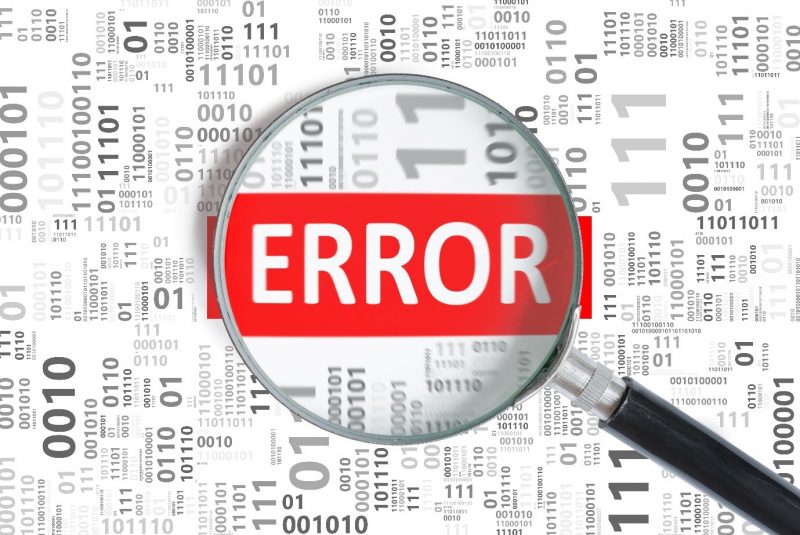
by John McCarthy Consulting Ltd. | Jun 5, 2019 | Blog, News
As we wrote in a recent blog on the topic of AML supervision, the report by OPBAS – the Office for Professional Body Anti-Money Laundering Supervision slates the accountancy and legal professions for lax regulation of their sectors.
Although this is a UK regulator , its views are influential with regulators elsewhere. For accountants there is likely to be a tougher enforcement approach taken in future as a result of this stinging report. OPBAS found that in 2018, only half of professional bodies issued fines for AML failings. It was even less in 2017 at 27%.
OPBAS has called for the Professional Body Supervisors (PBSs) to share information as a way of cracking down on covert activity. Almost half of the 22 bodies do that now, but OPBAS called for 100% cooperation by all bodies.
Some professional bodies have no resources allocated to intelligence sharing while others have no clear responsibilities or systematic approach to using intelligence to inform decisions or supervisory and enforcement work. There was also evidence that suspicious activity reports had not been raised by the PBSs when they should have been.
OPBAS has called on all PBSs to undertake risk-based supervision of the professions i.e. focused on the riskiest types of business or clients like tax, conveyancing, company formation. The watchdog says this must be properly resourced, with leadership from the top, and robust enforcement outcomes, along with a positive uptake in intelligence sharing.
Read that full OPBAS report here. To get prepared for the more robust AML visits that are surely coming see our latest Anti-Money Money Laundering blog here.
Also watch out for our new fully updated AML Policies & Procedures Manual coming in June 2019 – fully updated for the Criminal Justice (Money Laundering and Terrorist Financing) Acts, 2010 to 2018 which came into force on 26 November 2018.
For on-demand webinars on AML and developments in Investment Property Accounting, FRS 105, Common Errors in FRS 102 Accounting and the latest on FRS 105 and company law, visit our online webinar training website. Once viewing is completed customers will receive a CPD Certificate confirming their learning.

by John McCarthy Consulting Ltd. | May 29, 2019 | News
In a recent UK report by OPBAS – the Office for Professional Body Anti-Money Laundering Supervision it accuses many professional body supervisors (PBSs) of failing to supervise standards robustly, partly for fear of upsetting members and because they believe money laundering is not an issue for firms.
This is the first review by OPBAS of the 22 anti-money laundering (AML) supervisors in accountancy and law, which says the results show ‘a very variable picture’.
The OPBAS view is that the accountancy sector and many smaller professional bodies focus more on representing their members rather than robustly supervising standards. OPBAS say that this because they don’t believe – or don’t want to believe – that there is any money laundering in their sector.
There will be more on the report in future blogs. Read that full report here.
Also watch out for our new fully updated AML Policies & Procedures Manual coming in June 2019 – fully updated for the Criminal Justice (Money Laundering and Terrorist Financing) Acts, 2010 to 2018 which came into force on 26 November 2018.
For on-demand webinars on AML and developments in Investment Property Accounting, FRS 105, Common Errors in FRS 102 Accounting and the latest on FRS 105 and company law, visit our online webinar training website. Once viewing is completed customers will receive a CPD Certificate confirming their learning.

by John McCarthy Consulting Ltd. | May 23, 2019 | Blog, News
The GDPR is in place one year on 25 May 2019. How up to date are you on the application of the new data protection rules? Try this quick question. Is ‘storing data’ included in the definition of the term ‘processing’ as far as the GDPR is concerned? True or False?
To find out the correct answer, watch our webinar called ‘GDPR for Accountants’ where you may download the slides and support materials, all for just €45. On successful completion, receive a CPD certificate for your newly acquired knowledge. Well done!
The webinar is 54 minutes long and covers the basics of data protection from an accountancy practice angle. It may be viewed anytime for up to a year from date of purchase and covers the following key areas:
- Background to the data protection legislation;
- The Six Principles of GDPR (or is it Seven?);
- Changes to data processing responsibilities;
- New/enhanced data subject rights;
- New data governance obligations;
- Data breaches and new notification requirements; and
- An Action Plan to get your compliance up to date.
There are 18 other webinars on various topics – also for €45 each, or you may purchase two at the same time for €80 or five for €190.
All our webinars are accessible at any time (for 12 months from date of purchase) here.
We have also prepared, ready to use, several engagement and representation letter templates (in Word format) for many types of assignment, which help reduce misunderstandings about engagement scope and liability. These are available to purchase online (bulk purchases of 5 or more templates attract a 20% discount), please click on the relevant links.
Some shown here may be of interest to you:

by John McCarthy Consulting Ltd. | May 16, 2019 | News
There are five fundamental principles of the Code of Ethics for accountants who are members of all the different professional bodies. These are Integrity, Responsibility, Professional competence and due care, Confidentiality and Professional behaviour. True or False?
The answer is ‘False’.
To find out the correct answer, see our webinar called ‘Ethics for Accounting and Audit’ where you may download the slides and support materials, all for just €45. On successful completion, receive a CPD certificate for your newly acquired knowledge. Well done!
The webinar, is 62 minutes long, covers audit ethics and non-audit ethics separately. It may be viewed anytime for up to a year from date of purchase and includes the following key areas, among others:
- Brief introduction to ethics;
- Five Fundamental Principles;
- Conceptual Framework for decision making;
- Case studies for non-audit situations;
- Auditors’ Ethical Standard (Ireland); and
- Case studies.
There are 18 other webinars on various topics – also for €45 each, or you may purchase two at the same time for €80 or five for €190.
All our webinars are accessible at any time (for 12 months from date of purchase) here.
We have also prepared, ready to use, several engagement and representation letter templates (in Word format) for many types of assignment, which help reduce misunderstandings about engagement scope and liability. These are available to purchase online (bulk purchases of 5 or more templates attract a 20% discount), please click on the relevant links.
Our latest additions may be of interest to you:

by John McCarthy Consulting Ltd. | May 14, 2019 | Blog, News
Revaluation gains on tangible fixed assets go through the Profit & Loss Account. True or False? The answer is ‘False’.
To find out where revaluation gains on tangible fixed assets are presented, see our webinar called ‘Common Errors in FRS 102 Accounting’ where you may download the slides and support materials, all for just €45. On successful completion, receive a CPD certificate for your newly acquired knowledge. Well done!
The webinar, is 51 minutes long, and may be viewed anytime for up to a year from date of purchase, covers the following key areas, among others:
- Directors’ loans – the new rules on amortisation since 1 January 2019;
- Investment property revaluations;
- Statement of Changes in Equity (SoCE);
- Tangible fixed assets revaluations;
- Depreciation not charged;
- Going concern and break-up;
- Deferred tax gone missing;
- Areas of judgement and estimation uncertainty;
- Turnover accounting policy;
- Stocks/inventory accounting policy; and
- Disclosing the functional currency.
There are 18 other webinars on various topics – also for €45 each, or you may purchase two at the same time for €80 or five for €190.
All our webinars are accessible at any time (for 12 months from date of purchase) here.
We have also prepared, ready to use, several engagement and representation letter templates (in Word format) for many types of assignment, which help reduce misunderstandings about engagement scope and liability. These are available to purchase online (bulk purchases of 5 or more templates attract a 20% discount), please click on the relevant links.
Our latest additions may be of interest to you:

by John McCarthy Consulting Ltd. | Apr 29, 2019 | Blog, News
It doesn’t matter what is stated on your fee invoices. It’s more important what is in your working papers and correspondence files. True or False?
The answer is ‘False’.
The best advice is to make sure your fee notes match the scope of the engagement as embellishment could result in fraud risks.
To find out more about the latest best practice in avoiding negligence claims, go see our online webinar entitled How Best can Accountants’ Avoid Negligence Claims? where you may download the slides and support materials, all for just €45. On successful completion, receive a CPD certificate for your newly acquired knowledge. Well done!
The webinar, which may be viewed anytime for up to a year from date of purchase, covers the following areas:
- Recent cases against accountants;
- Where do claims commonly arise;
- Areas of greater risk for accountants;
- Avoiding claims;
- What if scenarios – 4 different scenarios;
- What to do if a claim/incident occurs; and
- Action plan to avoid claims in the future.
There are 18 other webinars on various topics – also for €45 each, or you may purchase two at the same time for €80 or five for €190.
All our webinars are accessible at any time (for 12 months from date of purchase) here.
We have also prepared, ready to use, several engagement and representation letter templates (in Word format) for many types of assignment, which help reduce misunderstandings about engagement scope and liability. These are available to purchase online (bulk purchases of 5 or more templates attract a 20% discount), please click on the relevant links.
Our latest additions may be of interest to you:










